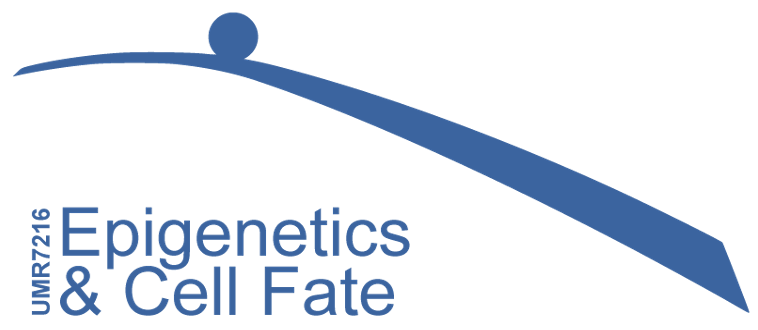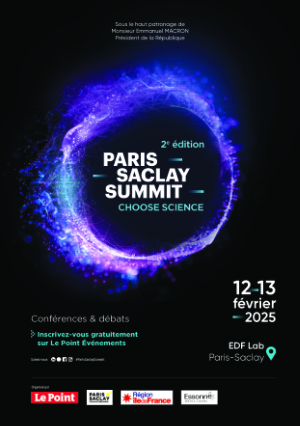Unraveling HSF-dependent stress response pathway dysregulation in neurodevelopmental disorders: new therapeutic avenues
| ABG-127129 | Sujet de Thèse | |
| 22/11/2024 | Contrat doctoral |

- Santé, médecine humaine, vétérinaire
- Biologie
Description du sujet
Neurodevelopmental disorders (NDDs) affect 10% of children, causing lifelong cognitive and behavioral challenges. The clinical variability of NDDs complicates the search for effective treatments. Our project targets a common feature across NDDs: disruption of stress response pathways, specifically involving Heat Shock Factors (HSFs). HSF2, which regulates proteostasis during stress, also plays a key role in brain development under normal conditions. Using two patient-derived iPSC models of NDDs—both exhibiting HSF2 dysregulation—and their isogenic models with restored HSF2, we aim to pinpoint the specific role of the HSF pathway in NDDs. Through advanced single-cell analyses applied to cerebral organoids derived from these models, we will identify HSF-dependent genes, pathways, and cell populations. These discoveries will be validated through independent approaches and will serve as a “readout” for future drug screening.
The team has extensive expertise in the CRISPR system, cell culture, and organoid formation, supported by collaboration with the ENscore platform, as well as bioinformatics support through EDC platforms, including BiBs and WISCI (10X Genomics).
The full description of the project is on the website https://dim-cbrains.fr/fr/phd-program/dim-cbrains ( see below)
Prise de fonction :
Nature du financement
Précisions sur le financement
Présentation établissement et labo d'accueil
UMR7216 - Epigenetic and Cell Destinity
The “Epigenetic and Cell Destinity” unit is a multidisciplinary research center founded in 2009 and located on the Grands Moulins campus of Paris Cité University.
Directed by Dr. V. MEZGER and Dr. C. ROUGEULLE, the unit brings together a network of teams with complementary expertise in molecular epigenetics, including DNA methylation, histone variants and modifications, and non-coding RNAs. Their research focuses on the role of these mechanisms in development, differentiation processes, and their contributions to pathological conditions.
The unit’s research activities are supported by a range of state-of-the-art technical platforms and facilities, as well as comprehensive support services across various fields.
Site web :
Intitulé du doctorat
Pays d'obtention du doctorat
Etablissement délivrant le doctorat
Ecole doctorale
Profil du candidat
Expected involvement of the student in the project and desired skills
The candidate will develop the NDD model (Angelman-like syndrome, AGS-L) by generating patient human cortical organoids (hCOs) and HSF2-rescued patient hCOs (done by genome editing), then conduct a single cell multi-omics comparative analysis of HSF2-rescued and patient hCOs at two developmental stages. Finally, he will validate the defective molecular pathways identified in hCOs, focusing on stress and adhesion related pathways. Combining results from the RSTS model and the established AGS-L model will shed light on the core defective pathways dependent on HSF2.
Expected competences:
1. Educational Background:
Degree in neuroscience, cell biology, or a related field, with relevant coursework in neurobiology.
2. Technical Skills:
Proficiency in 2D and eventually 3D cell culture
Experience with single-cell RNA sequencing (scRNA-seq) and associated data analysis.
3. Attention to Detail and Organization: Meticulous approach to experiments, strong organizational skills for managing multiple projects, and maintaining detailed records.
4. Bioinformatics Knowledge: Basic understanding of bioinformatics tools for analyzing genomic data.
5. Collaboration Skills: Ability to work effectively in a team and communicate findings clearly.
6. Passion for Research: Enthusiasm for neuroscience and a commitment to advancing the field.
Vous avez déjà un compte ?
Nouvel utilisateur ?
Vous souhaitez recevoir nos infolettres ?
Découvrez nos adhérents
 ONERA - The French Aerospace Lab
ONERA - The French Aerospace Lab  Laboratoire National de Métrologie et d'Essais - LNE
Laboratoire National de Métrologie et d'Essais - LNE  Tecknowmetrix
Tecknowmetrix  Institut Sup'biotech de Paris
Institut Sup'biotech de Paris  Ifremer
Ifremer  Groupe AFNOR - Association française de normalisation
Groupe AFNOR - Association française de normalisation  Aérocentre, Pôle d'excellence régional
Aérocentre, Pôle d'excellence régional  CASDEN
CASDEN  PhDOOC
PhDOOC  Nokia Bell Labs France
Nokia Bell Labs France  ANRT
ANRT  Institut de Radioprotection et de Sureté Nucléaire - IRSN - Siège
Institut de Radioprotection et de Sureté Nucléaire - IRSN - Siège  ADEME
ADEME  Généthon
Généthon  SUEZ
SUEZ  MabDesign
MabDesign  TotalEnergies
TotalEnergies  CESI
CESI  MabDesign
MabDesign



